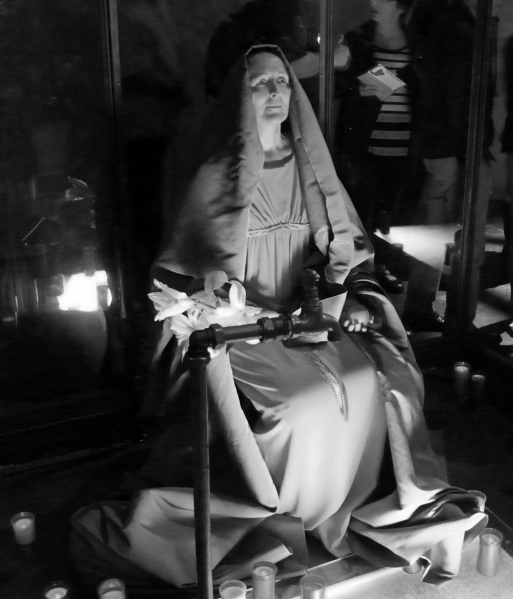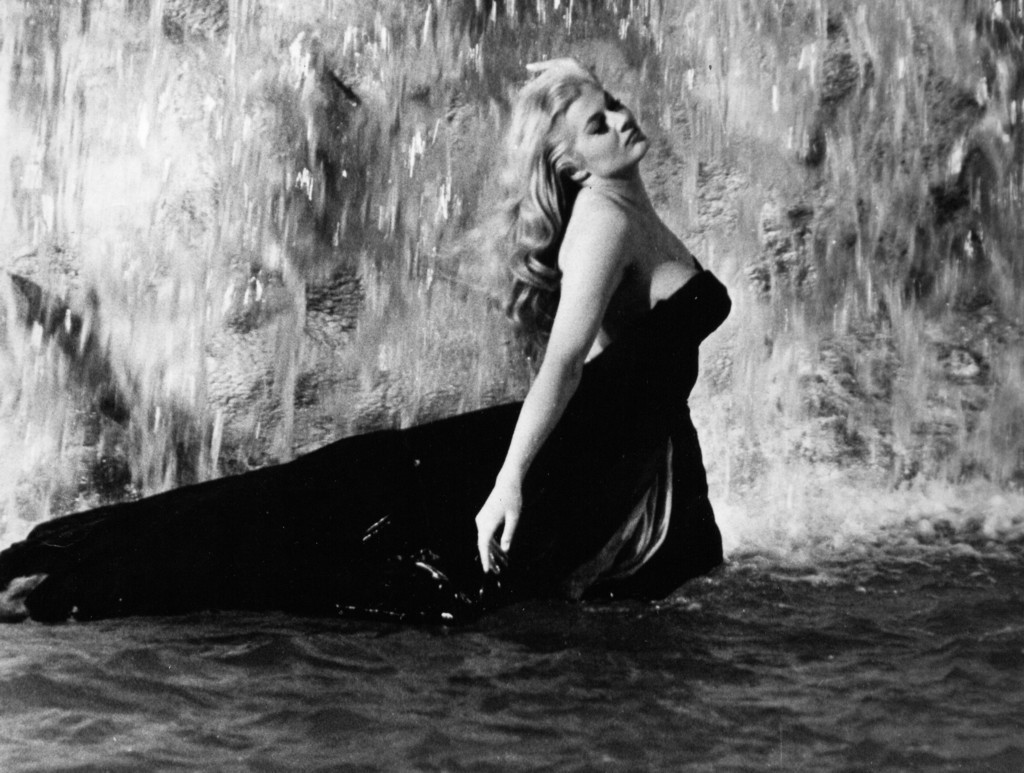My Testament: Fiona Shaw’s Mary Is Not My Mary
 Now that The Testament of Mary, actress Fiona Shaw’s latest theatrical collaboration with director Deborah Warner, has closed after only a few weeks, it’s probably poor form to stomp upon its grave. But stomp I shall. This Broadway adaptation of Colm Tóibín’s novel about Jesus’ mom after his crucifixion proved so bottomlessly negative that, if it’s slightly blasphemous to kick a play when it’s already down, then at least blasphemy about purported blasphemy may amount to a double-negative positive. Pretty to think so, anyway.
Now that The Testament of Mary, actress Fiona Shaw’s latest theatrical collaboration with director Deborah Warner, has closed after only a few weeks, it’s probably poor form to stomp upon its grave. But stomp I shall. This Broadway adaptation of Colm Tóibín’s novel about Jesus’ mom after his crucifixion proved so bottomlessly negative that, if it’s slightly blasphemous to kick a play when it’s already down, then at least blasphemy about purported blasphemy may amount to a double-negative positive. Pretty to think so, anyway.
There’s not much more pretty to be found in this production, which features a Mary who’s hardly a picture of beatific peace and purity. Pacing the room to which she’s been relegated since her son’s death, she smokes, drinks, bellows, gnashes her teeth, matter-of-factly strips, and calls bullshit left and right. This is a Mary who’s not buying the claim that she gave birth to the son of God. If she were the type to pun—and she’s too pissed off for such folly—she’d likely call the fallout from his death a crucifiction.
Before the play officially begins, Shaw sits, uh, mum in a centerstage elevated glass box, draped in soft flowing fabrics and decorously posed, the very picture of the Mother Mary statues flanking every corner of my Italian-American neighborhood. Audience members from the orchestra seats file onstage to ogle her and the haphazard set: furniture upturned, books and barbed wire strewn wily-nily on the floor, and old newspapers stacked in piles upon piles—the international sign for “crazy person.”
But once the lights darken and everyone settles back into their seats, the box lowers and Shaw steps from her throne, instantly breaking the reverie. “They want to know what happened,” she says, drawing in on a cig and exhaling slowly. “Memory has filled my body.” It’s clear it’s an unwelcome invasion. Pacing the stage fitfully, she changes her clothes frequently, as if she were trapped in that state of misery and rage and discomfort when nothing feels right, not even your own skin stretched across your skeleton.
Slowly, her version of her son’s transmutation emerges. It is not unlike the story of many women who feel abandoned and betrayed by their offspring. Her sweet son grew too big for his britches. He got mixed up with the wrong crowd, dangerous people who encouraged his folly and led him to trouble. He disrespected her in front of others. He flew the coop and never came back. In her dotage she has been abandoned with no creature comfort, not even the sanctimony of the blameless, for she is horrified by how she abandoned her son as he died upon the cross.
She speaks in hoarse, ragged tones, and when she really gets up in arms, screams a smoker’s impotent scream. It is totally empty of force. “He used such strange, proud words,” she rages. “He said, ‘Woman, what am I to do with you?’ But I am not one of his followers.” When she relays how he changed water to wine, she scours the event for evidence of his manipulation. Where did those kegs of water come from? she wonders. It all seemed a little, well, convenient, didn’t it? She’s your standard impossible-to-please mother here, blaming everyone, including herself, and nurturing none. A Thoroughly Modern Mary, disenfranchised and alone. You can practically hear Shaw, Warner, and Tóibín slapping themselves on the backs for their radical subversion of the Good Mommy paradigm that forms the backbone of Christian mythology. Continue Reading →


